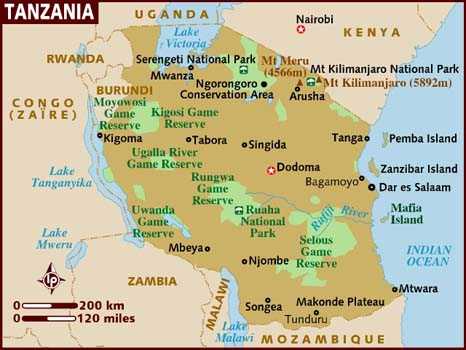According to FAS/ Dar es Salaam, Tanzania’s coffee production is expected to increase from 1.15 million bags in MY 2017/18 to 1.30 million bags in MY 2018/19 due to biennial bearing cycle and favorable weather conditions reported by Tanzania Meteorological Authority (TMA).
The ending stocks for MY 2018/19 are forecast up by seven percent from MY 2017/18 due to an increase in production.
Tanzania has abundant land with appropriate altitude, temperature, rainfall and soil suitable for high quality Arabica and Robusta production. The major Arabica growing regions are Kilimanjaro/Arusha, Mbeya, and Mbinga/Ruvuma.
Robusta is mainly produced in the Kagera region. Other growing regions include Tanga, Iringa, Morogoro, Kigoma, Manyara, Mwanza, Rukwa and Mara. About two-thirds of the coffee produced in Tanzania is mild Arabica, and the rest is hard Arabica and Robusta. Approximately more than 450,000 families grow coffee.
This constitutes about 90% of the total coffee producers. The remaining approximately 10% comes from the estates. Indirectly coffee make a living for about six to seven percent of the country population that is currently estimates to be 56 million.
A lack of access to irrigation systems, a large number of older coffee trees, and highly volatile coffee prices, and other factors cause dramatic fluctuations in Tanzania’s coffee production.
Tanzania also suffers from poor agricultural practices by many smallholder producers, limited access to credit, lack of adequate farming inputs, and low use of inputs.
In response, the Tanzania Coffee Board (TCB) is implementing a government-sponsored coffee program that aims at increasing production to more than 100,000 tons by year 2021 by improving husbandry practices, planting improved varieties, and facilitating the private sector to start new farms.
Through the combination of these measures, crop yield is expected to increase from the current 250kg/ha (200g/tree) to 600kg/ha (450g/tree).
According to Tanzania Coffee Board (TCB), the total combined coffee production area for Arabica and Robusta exceeds 265,000 hectares.
Consumption
At a time when coffee production in Tanzania has been growing, consumption has remained stagnant. FAS/Dar es Salaam forecasts domestic coffee consumption will remain flat for the third consecutive year in 2018/19. The annual per capita coffee consumption in the country is 0.1 kg, and only seven percent of the country’s total coffee production is consumed domestically. The TCB is promoting coffee consumption in the local market. At present Tanzania exports a large share of its coffee and the TCB is looking to change this.
Stocks
The ending stocks for the MY 2018/19 expected to increase by seven percent compared to those of MY 2017/18 due to an increase in total production. Coffee stocks are held by small-scale farmer’s cooperatives, farmers groups, traders, exporters, and large scale coffee growers.
Marketing
Tanzanian coffee is marketed through a centralized system via an auction in Moshi. At the auction, the TCB sells coffee every Thursday during the season (usually 9 months) where buyers buy coffee for export and processing.
Most of the prominent exporters affiliates with multi-national companies that sell coffee to roasters in consuming countries. Prices in this market are generally set in reference to the New York Futures market for Arabica coffee and the London Futures market for Robusta coffee.
Up to the end of 2017, producers of premium top grade coffees that were able to establish direct contacts with buyers overseas allowed to by-pass the auction and sell their coffee directly.
From January 2018, the government of Tanzania banned direct export marketing of coffee. Coffee farmers should sell their coffee to cooperatives unions, farmer groups’ or associations.
Then buyers take the coffee for drying and milling to produce clean coffee (green beans) and sell at the auction in Moshi.
Exports
The main export destinations for Tanzania’s coffee are Japan, Italy, United States, Germany, Belgium, Sweden, and Finland. Tanzania also exports soluble coffee that is manufactured at a plant in Bukoba for neighboring countries.
According to TCB, coffee accounts for about five percent of Tanzania’s total exports by value and generates earnings averaging US$100 million per year.
The industry provides direct income to about 400,000 smallholders who produce 90 percent of the Tanzania’s coffee.
Post forecasts a 16 percent increase in total exports in 2018/19 versus the previous year.


















